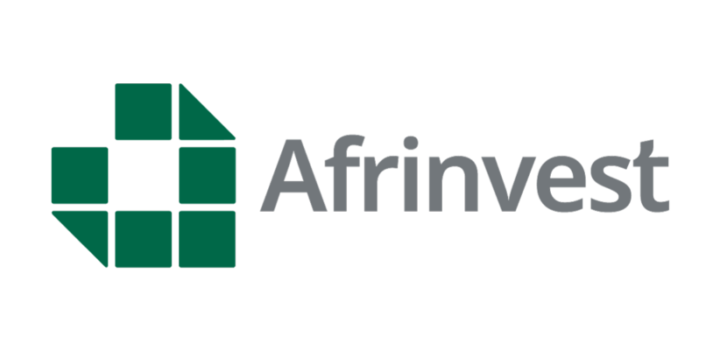Afrinvest (West Africa) Limited has cautioned that Nigeria’s aspiration of growing its economy to a $1 trillion Gross Domestic Product (GDP) by 2030 could be derailed by persistent inflationary pressures, fiscal imbalances, and structural weaknesses that continue to undermine macroeconomic stability.
The investment and research firm made this known in its latest economic outlook report, noting that while the government’s ambition is laudable, the realities of Nigeria’s economic environment present formidable obstacles. Afrinvest highlighted that unless urgent reforms are undertaken to address these challenges, the target may remain elusive.

According to the firm, inflation remains one of the most pressing threats. Nigeria’s inflation rate, which has remained in double digits for years, recently accelerated to record highs, driven largely by surging food prices, foreign exchange volatility, and high energy costs. This, Afrinvest argued, erodes consumer purchasing power, stifles investment, and discourages savings—all of which are necessary to drive sustainable economic growth.
The report noted that food inflation, in particular, has become a key driver of household poverty. Rising input costs, insecurity in farming communities, and weak logistics infrastructure have compounded the problem, leading to reduced productivity and higher market prices. The firm stressed that without urgent interventions in agriculture and supply chain management, food-driven inflation would continue to weigh heavily on Nigeria’s growth prospects.
Afrinvest also pointed to fiscal constraints as another obstacle. With debt servicing obligations consuming a significant portion of government revenues, Nigeria has little fiscal space left for infrastructure investment and social spending. The firm argued that unless the government broadens its revenue base, plugs leakages, and improves tax administration, funding the type of investments required to drive a trillion-dollar economy will remain a struggle.
Foreign exchange instability is another critical factor identified in the report. Afrinvest observed that persistent currency volatility, compounded by limited dollar inflows, continues to hinder investor confidence. Many businesses, particularly those reliant on imports, face difficulty in sourcing foreign exchange, which disrupts production, raises costs, and constrains competitiveness.
The report further underscored the role of structural bottlenecks such as unreliable power supply, poor transport infrastructure, regulatory uncertainty, and insecurity. These factors, Afrinvest said, reduce productivity, increase business risks, and make Nigeria less attractive for domestic and foreign investment.
Despite these concerns, Afrinvest acknowledged that the $1 trillion GDP ambition is not entirely unrealistic if decisive reforms are implemented. The firm highlighted areas such as energy sector reforms, investment in infrastructure, improvements in security, and the promotion of value-added exports as critical steps toward unlocking growth.
Afrinvest also recommended strengthening the financial sector to channel more credit to productive sectors such as agriculture, manufacturing, and technology. The report noted that Nigeria’s credit-to-GDP ratio remains far below global averages, limiting the ability of businesses to scale. Expanding access to credit, particularly for small and medium enterprises, was identified as a key driver of inclusive growth.
Furthermore, the firm urged the government to accelerate reforms in the oil and gas sector, including implementing the Petroleum Industry Act (PIA) fully, to maximize Nigeria’s hydrocarbon potential while diversifying into renewables. Afrinvest emphasized that revenues from the energy sector could provide a much-needed buffer for infrastructure investment if managed prudently.
The firm also called for urgent reforms in governance and policy consistency. Investors, Afrinvest noted, often hesitate to commit long-term capital to Nigeria due to frequent policy reversals and regulatory unpredictability. By ensuring clarity, transparency, and accountability in economic management, the government can build confidence and attract more private sector investment.
Speaking on the report, Afrinvest’s Managing Director, Ike Chioke, said Nigeria must urgently confront its economic realities if it is to achieve the $1 trillion GDP goal. He noted that while the ambition is achievable given Nigeria’s vast human and natural resources, the country must align its policies with global best practices and prioritize inclusive growth.
Chioke emphasized that reducing inflation should be at the center of government’s economic agenda. “Sustained high inflation not only undermines consumer welfare but also hampers long-term investment decisions. Without price stability, it will be difficult to achieve the levels of productivity and competitiveness required for a trillion-dollar economy,” he said.
Analysts also argue that Nigeria must embrace digital innovation and technology to fast-track growth. With its youthful population and growing tech ecosystem, the country has the potential to build a knowledge-driven economy that could rival traditional resource dependence. However, this would require significant investment in digital infrastructure, education, and skills development.
Afrinvest’s warning comes as the Federal Government continues to project optimism about its economic agenda. President Bola Tinubu has repeatedly expressed his administration’s commitment to achieving the $1 trillion GDP milestone by 2030, emphasizing reforms in fiscal management, industrialization, and private sector partnerships.
Yet, many experts insist that Nigeria must demonstrate stronger political will to drive reforms, address insecurity, and create an enabling environment for businesses to thrive. Without such bold steps, they argue, the trillion-dollar ambition could remain a distant dream.
As the debate continues, Afrinvest’s report serves as a reminder that economic ambitions must be matched with practical strategies and measurable actions. Nigeria’s path to a $1 trillion economy, while possible, will depend on how quickly and effectively it addresses the fundamental issues that have constrained growth for decades.
Support InfoStride News' Credible Journalism: Only credible journalism can guarantee a fair, accountable and transparent society, including democracy and government. It involves a lot of efforts and money. We need your support. Click here to Donate
